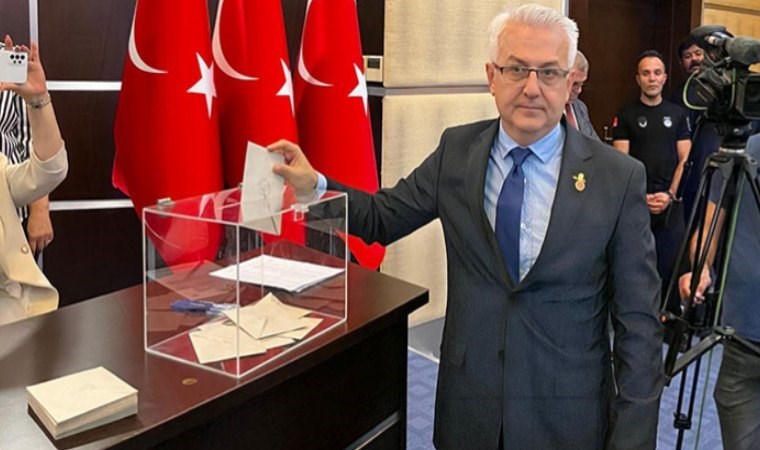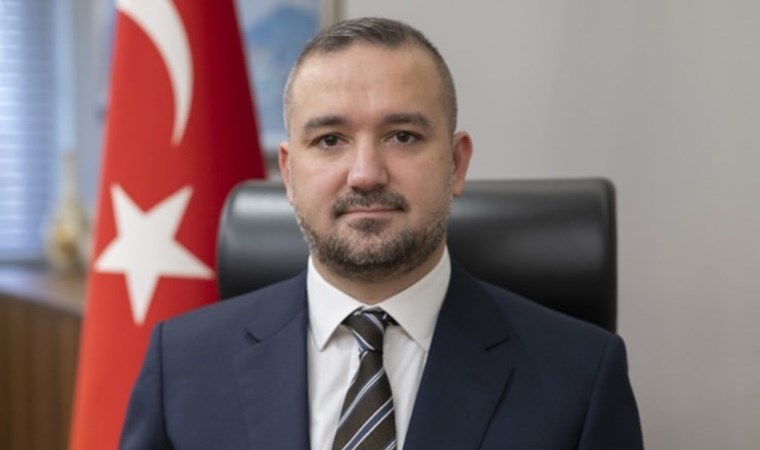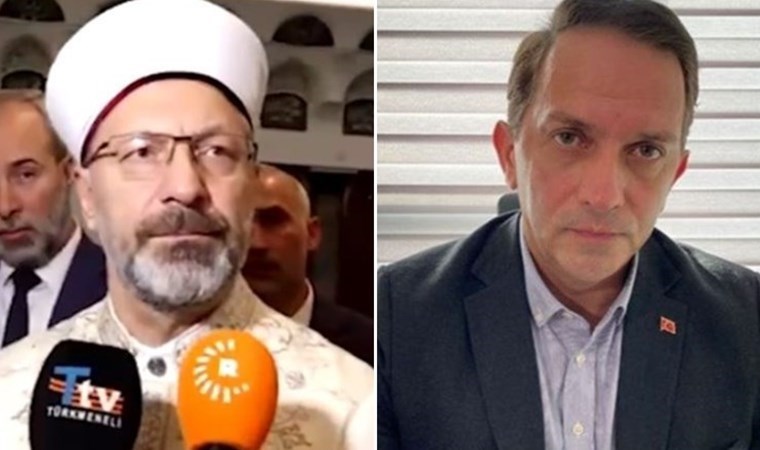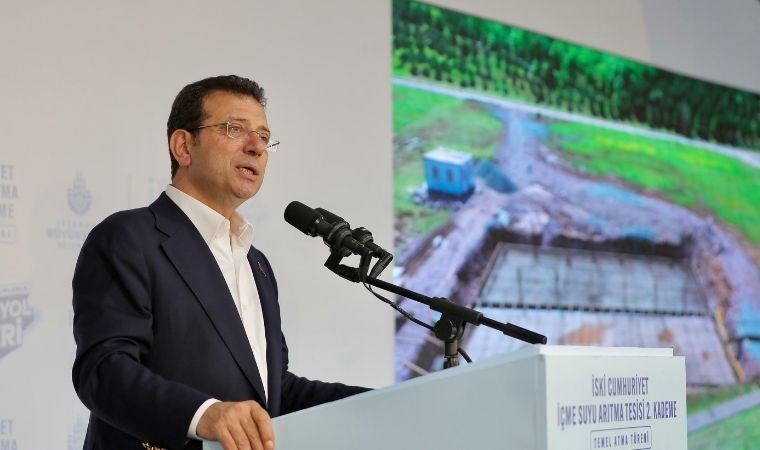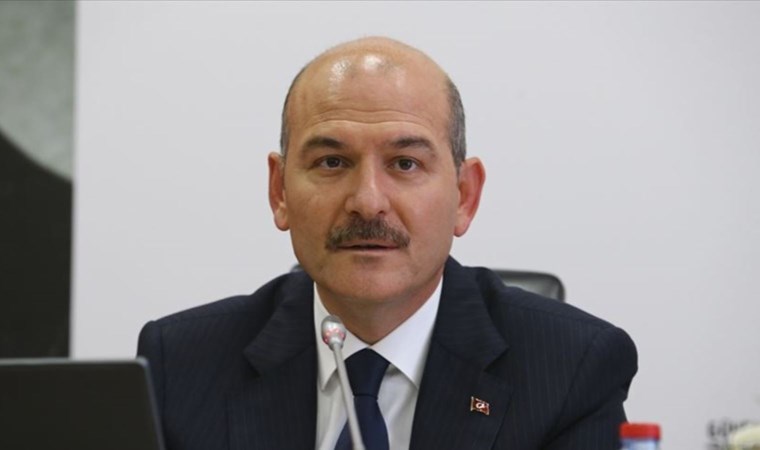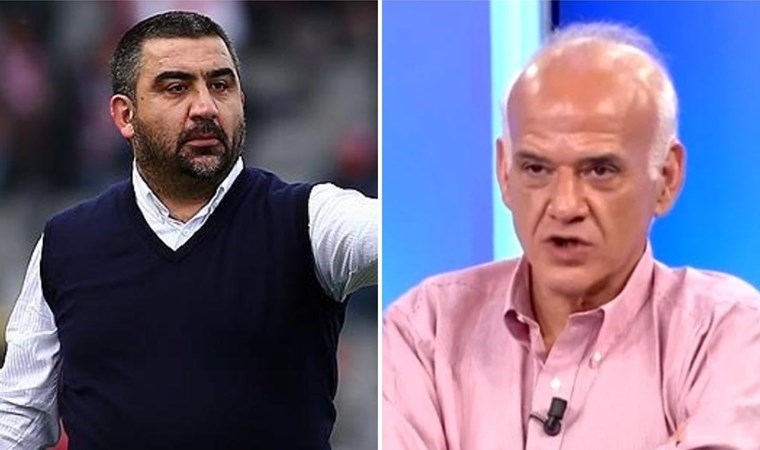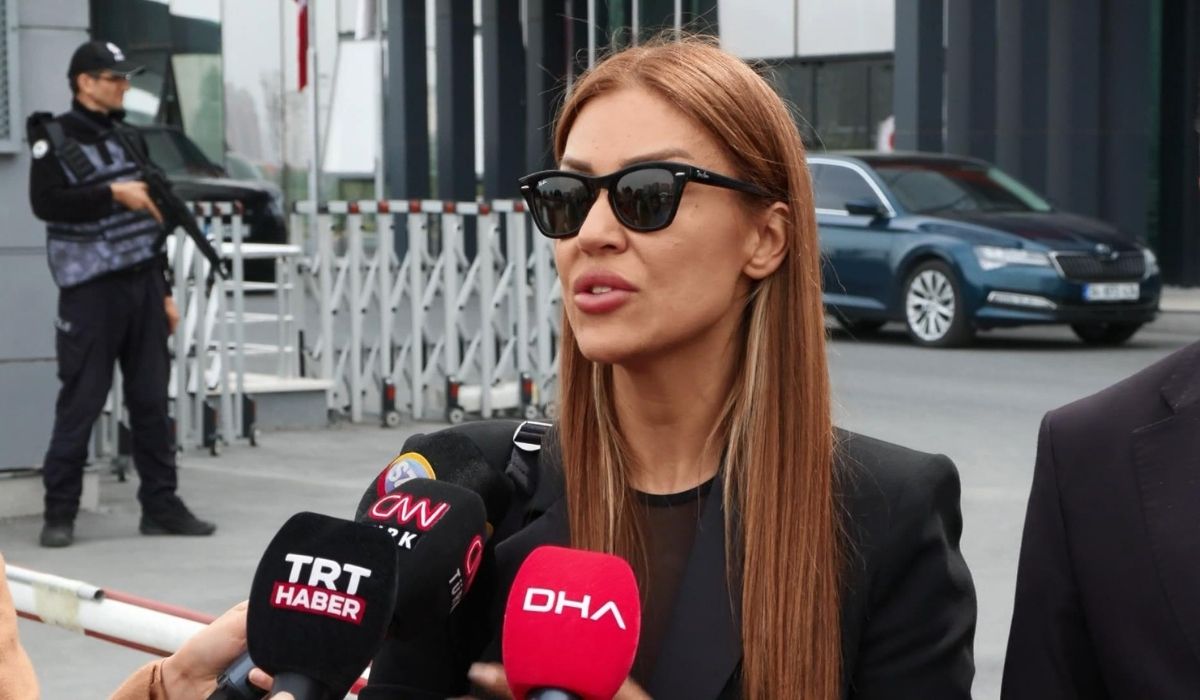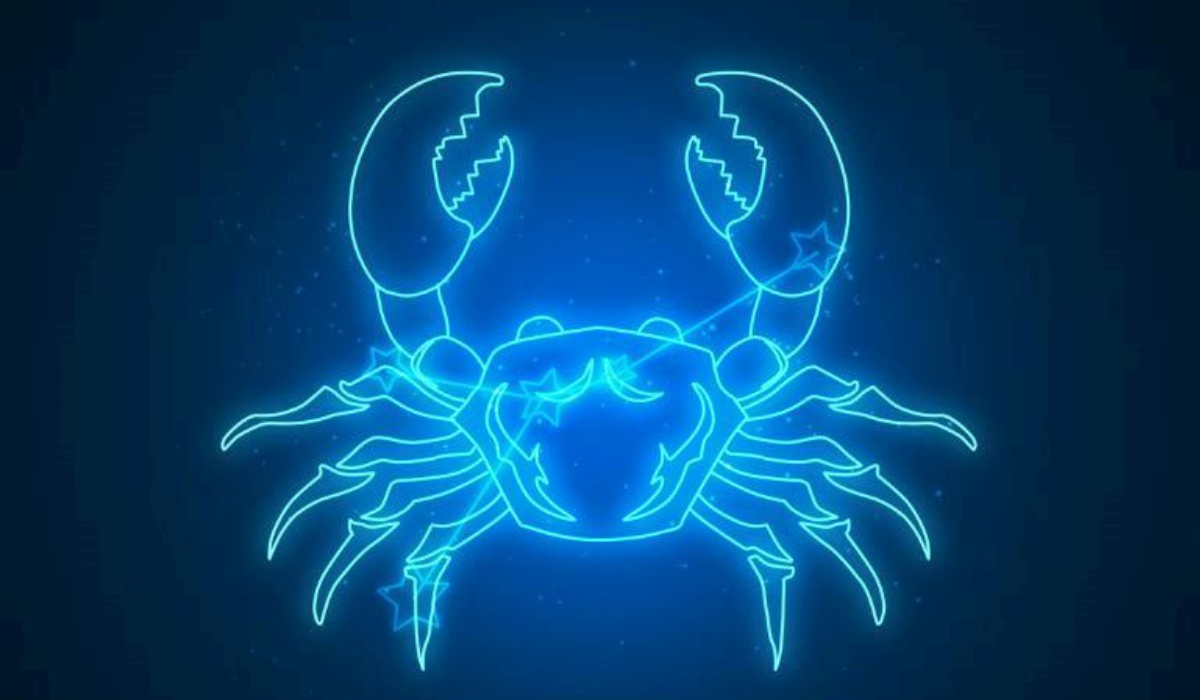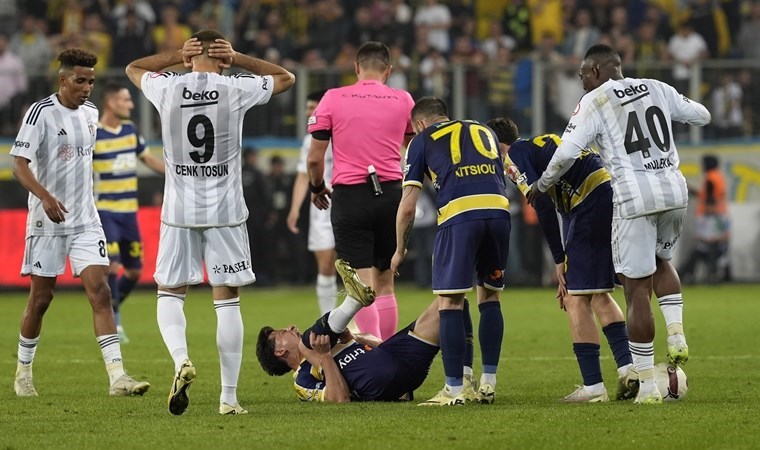Cumhuriyet manager and columnist Hakan Kara: physical incarceration brings mental freedom
Cumhuriyet manager and columnist Hakan Kara spoke of his nine months in detention.
Erdem Gül
Hakan Kara is one who has worked for 34 years in every unit of Cumhuriyet. This is how the nine months passed for Hakan Kara:
- When I entered jail: I went out into the yard. I looked at the eight-metre high walls. Barbed wire all around. I told myself, “This space is suitable for taking a walk.” As soon as I started pacing, I began to think about the books I should read in prison. For some reason, the first book to come to mind was Kafka’s “Metamorphosis”. This was actually the first book that I requested from the library after this.
- My six-year-old daughter’s first question: I was unable to attend my daughter’s nursery school graduation ceremony. After I got out of jail, I first quenched my longing for my daughter. Her first sentence for me was, “Do you know, dad, I am now six, and I was five when you went!” And, when we were alone, the first question she asked was, “Why didn’t you come to my graduation ceremony, dad?”
- Eight kilometres per day, total two thousand: You know, in jail there is not a great deal you can do. Walking, thinking, reading books, imagining, writing. Prison for me became a place where you walk like a Ferris wheel, i.e. pace up and down, and read massive amounts of books. I read 73 books. I walked an average of eight kilometres a day. It makes a total of two thousand kilometres.
- Flights of fantasy: I think being physically incarcerated makes a person freer mentally. Or, prison is such an absurd environment that it is as though this environment inclines people to engage in more extraordinary fantasies. It is odd, but, yes, prisons are suitable places for flights of fantasy in my view. For example, you can, as John Lennon put it, “imagine a world without property” in prison.
-Mamak Song: Being without music had a negative effect on me. But, at weekends the detainees and convicts sang songs in the yard. I heard Yeni Türkü’s “Mamak Song” countless times. Some of the detainees and convicts had really lovely voices. The songs they sang were such that I will never forget them.
- First a by-pass and then jail: I had a by-pass operation a while back. I went through a bit of a bothersome time. I noticed that I couldn’t breathe when I came to. I was in intensive care. They kept me alive there. I saw how people are kept alive in intensive care. It was a curious experience I had. They say, after all, that people only realise the value of something once they have lost it. We appreciate the value of health when we fall ill. The value of life on encountering death. And a person understands the value of freedom on going into prison. The same applies to the law. We only realise its value on losing it. They say, “If the law is not paramount in a country, this means everything is trampled on.” It is a true comment.
- I have no traffic penalties: I have worked at Cumhuriyet for 34 years. More than two thousand of my news reports and columns have been published in the paper. Until now, not a single article of mine has been refuted. I feel proud of this. I don’t think the same importance is now attached to not being refuted. It was once important. I have never been in prison. A more apt way of putting it might be to say: “I do not even have a traffic penalty.”
- Zekeriya Öz’s legacy: We have never fallen into such a bad state. This is not how the courts were even in the period after 12 September. The powerful prosecutor at the time, FETOist Zekeriya Öz, has fled and left this country. But he has left a horrific legacy behind.
- The indictment was boring: I read the indictment from start to finish at least three times and made notes. The indictment is 237 pages in any case. But, we also had thirty annexed binders. They were curious, too. But, I did not read all of them. I just read the places that might be needed. But, it was really pretty boring. The indictment was boring and the annexed files were even more boring. In fact, so boring that I read the indictment along with three books at the same time. When I was overwhelmed, I turned to the books for some relief.
- They would not easily let us go: If a person can be thrown in jail for such contrived reasons and can spend months in jail, then they look at events differently. I thought that they would not easily let us go. Hence, I prepared myself a daily programme as soon as I entered prison, anyhow. Alongside books and walks, I tried to develop my German and English. When I spoke to my wife in the very first month of my detention, we talked about me being able to get out towards the end of the year.
- The things needed to live: A person gets to see in prison what a minimalist life can be like. In our cell there was a plastic table and three plastic chairs. Later, a television and fridge came. That was it. As you know, certain amounts of clothing are given. Two pairs of trousers, two pairs of shoes and one pair of plastic slippers. After some time you say, “This means that people do not need too much to live.” So, if we are talking about adaptation in terms of staying alive, I can quite easily say that, no, I had no trouble. But, no, I was unable to get used to being away from or indeed being deprived of my daughter, wife, family and loved ones, especially when this was unjustified. I do not think it would be very possible for me to get used to this, either.
- None of us are free: Facing reality, none of us is really free in the true sense. You realise this better in prison. Maybe we can gain our freedom if we can come to terms with this truth. History is a struggle for freedom. As to freedom, this is the product of attaining awareness of the existing obstacles and the struggle to surmount them. A person can sense in prison where this business may end up.
- We had to memorise everything we were going to say: Receiving and writing letters is prohibited. Passing a written note to the outside is prohibited. I mean, you cannot give your wife a piece of paper with writing on it. Or, we could not take a written text with us while going for visits. We had to memorise everything we were going to say. We were only able to see our lawyers once a week. All visits were recorded and a prison official was at your side. I was only able to make a ten-minute phone call with my daughter once a week. Contact visits were once every two months. Initially, it was also prohibited for our wives to bring books to the prison. In fact, we were not even able to get books in any real sense from the prison library for three weeks. However, the book issue was later resolved and we got some comfort.
- If only there had been an organic agriculture course: Why can we not read the books in the library digitally on tablets? Today there are tablets on sale for 100 lira. Why can there not be digital libraries with 50,000 books each in every prison in Turkey? Then, why not encyclopedias? Why can detainees and convicts not read them? Why can detainees not access pages like Wikipedia or newspaper web pages on the internet? Then, why are people not given courses in jail? For instance, if there had been an organic agriculture course for the nine-month period I spent in jail, I would gladly have participated in that.
- What if I had had a heart attack?: Everyone experiences pessimism and hopelessness from time to time in prison. Especially if you have health problems this becomes more acute. I had a by-pass operation before entering prison. I thought that if I had a heart attack in prison I would have had it. And my biggest pessimism was over what if I could not see my daughter again. Anyhow, nothing serious happened.
- We read Cumhuriyet line by line: Cumhuriyet newspaper is a newspaper that is of the same age as the Republic of Turkey. It is an important paper. It is a paper that symbolises the gains of the republic. It is currently battling many problems. But, despite all the negative factors, I think it is still Turkey’s best paper. While in prison, we also read Cumhuriyet line by line every morning. I would like to take this opportunity to congratulate the colleagues who worked with sacrifice over this period.
- Terrorism brought sadness and the Justice March hope: Acts of terror especially made us very sad. We worried for our fellow citizens, above all our loved ones. In the same way, we felt great grief over those of our people who laid down their lives. On the other hand, Kemal Kılıçdaroğlu’s Justice March brought us hope. It brought hope to Turkey. I couldn’t help thinking if only we had been on the outside and had participated in that march, too.
- My daughter, wife and loved ones: I missed my daughter and wife most. My loved ones and family. And then my tablet and computer. Listening to music. Even writing computer programs.
- Our thoughts were with Nuriye and Semih: Our thoughts were with Nuriye Gülmen and Semih Özakça. I hope the government will take the necessary steps and reinstate their right to work. For them to return to their schools. For them to continue their lives. This is a requirement of justice and democracy.
Justice for our five colleagues
With us waiting in prison for justice to happen, unfortunately what happened was injustice. The same thing applies to the five of our colleagues who are inside. This is what I said last week at the Justice Watch in front of the Çağlayan Judicial Complex. We expect them to be released immediately. While they are in prison, none of us is free in the true sense. We are on the outside and are not fleeing. There were basically three grounds for our nine months’ imprisonment. First, they said the evidence had not yet been gathered. Well, questions as to why they threw us inside if there exists no evidence have remained unanswered. Then they said we would tamper with the evidence. There can certainly be no tampering with evidence that is not out there, because the thing called evidence are news reports published in the paper. I mean, there is no time machine for you to go back into the past and tamper with those reports. Thirdly, they said we would flee. However, we have colleagues under prosecution in the same case who are on pre-trial release. None has fled. Now seven of us have been released. All of us are attending to our duties. As you see, nobody has absconded. We expect our detained colleagues to be released as soon as possible.
- If the evidence is news, what is on trial is journalism: If the evidence is news, what is on trial is journalism. Action must be taken to get away from this shameful situation. Journalists who are in jail and have no connection with terrorism must be released urgently. They must be placed on pre-trial release in conformity with the presumption of innocence. They are now saying that these people are not in jail because of the profession of journalism. If the things submitted as evidence in a case file are news reports, this means that these people are in jail because of journalism.

En Çok Okunan Haberler
-
 Kepez Belediyesi'nde yeni başkan belli oldu
Kepez Belediyesi'nde yeni başkan belli oldu
-
 ‘Haddini bilsin, tepemin tasını attırmasın’
‘Haddini bilsin, tepemin tasını attırmasın’
-
 Merkez Bankası faiz kararını açıkladı
Merkez Bankası faiz kararını açıkladı
-
 AKP'li isimden istifa çağrısı!
AKP'li isimden istifa çağrısı!
-
 Dilan ve Engin Polat çiftinin yargılandığı davada karar
Dilan ve Engin Polat çiftinin yargılandığı davada karar
-
 'Kapıdan içeri sokmayın'
'Kapıdan içeri sokmayın'
-
 Evlilikte şanslı olan 4 burç!
Evlilikte şanslı olan 4 burç!
-
 Soylu geri mi dönüyor?
Soylu geri mi dönüyor?
-
 Çorlu tren katliamı davasında karar!
Çorlu tren katliamı davasında karar!
-
 Motorin indirimi pompaya yansıdı
Motorin indirimi pompaya yansıdı
